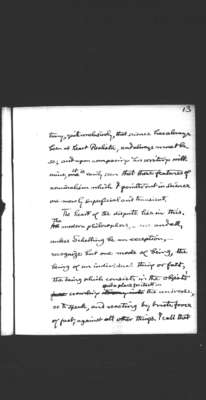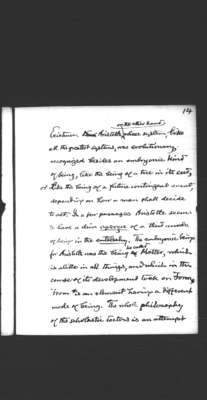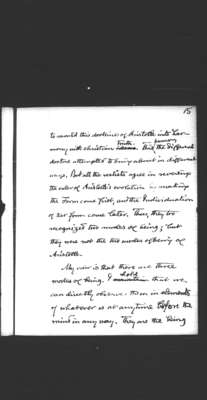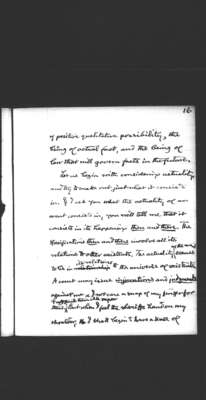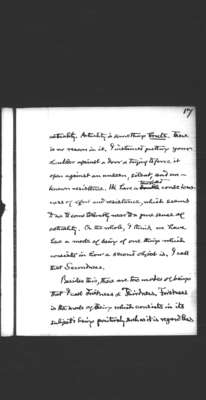Pages
111
13
trary, quite conclusively, that science has always been at heart Realistic, and always must be so; and upon comparing his writings with mine, one it is easily seen that these features of nominalism which I pointed out in science are merely superficial and transient.
The heart of the dispute lies in this. All The modern philosophers,—one and all, unless Schelling be an exception,— recognize but one mode of being, the being of an individual thing or fact, the being which consists in the object's force crowding its way into out a place for itself in the universe, so to speak, and reacting by brute force of fact, against all other things. I call that
112
14
Existence. Aristotle, on the other hand, whose system, like all the greatest systems, was evolutionary, recognized besides an embryonic kind of being, like the being of a tree in its seed, or Like the being of a future contingent event, depending on how a man shall decide to act. In a few passages Aristotle seems to have a dim aperçu of a third mode of being in the entelechy. The embryonic being for Aristotle was the being he called Matter, which is alike in all things, and which in the course of its development took on Form. Form is an element having a different mode of being. The whole philosophy of the scholastic doctors is an attempt
113
15
to mould this doctrine of Aristotle into harmony with christian truth. This harmony the different doctors attempted to bring about in different ways. But all the realists agree in reversing the order of Aristotle's evolution by making the Form come first, and the Individuation of that form come later. Thus, they too recognized two modes of being; but they were not the two modes of being of Aristotle.
My view is that there are three modes of being. I hold that we can directly observe them in elements of whatever is at anytime before the mind in any way. They are the being
114
16
of positive qualitative possibility, the being of actual fact, and the being of law that will govern facts in the future.
Let us begin with considering actuality, and try to make out just what it consists in. If I ask you what the actuality of an event consists in, you will tell me that it consists in its happening then and there. The specifications then and there involve all its relations to other existents. The actuality of the event seems to be in its relations to the universe of existents. A court may issue injunctions and judgments against me & I not care a snap of my finger for them. I may think them idle vapor. But when I feel the sheriff's hand on my shoulder, I shall begin to have a sense of
115
17
actuality. Actuality is something brute. There is no reason in it. I instanced putting your shoulder against a door and trying to force it open against and unseen, silent, and unknown resistance. We have a two sided consciousness of effort and resistance, which seems to me to come tolerably near to a pure sense of actuality. On the whole, I think we have here a mode of being of one thing which consists in how a second object is. I call that Secondness. Besides, this, there are two modes of being that I call Firstness and Thirdness. Firstness is the mode of Being which consists in its subject's being positively such as it is regardless
